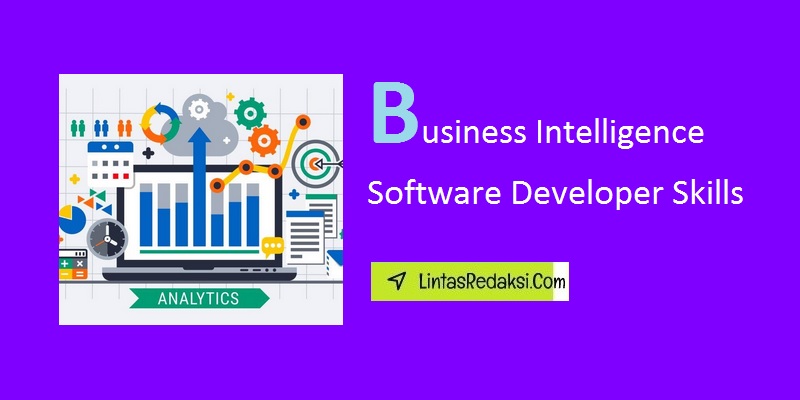Business Intelligence Software Developer Skills – In the rapidly evolving landscape of technology, the role of BI Software Developers has become increasingly vital. These professionals are tasked with harnessing the power of data to drive informed decision-making and achieve strategic business goals. To excel in this dynamic field, a set of key skills are necessary to navigate the complexities of developing effective business intelligence solutions.
Daftar Isi
Essential Business Intelligence Software Developer Skills
In the realm of business intelligence (BI) software development, possessing a diverse skill set is crucial for success. BI software developers play a pivotal role in creating tools and systems that enable businesses to make informed decisions based on data analysis and interpretation.
Proficiency in Programming Languages
An essential skill for BI software developers is expertise in programming languages such as SQL, Python, and R. These languages are commonly used for data manipulation, querying databases, and creating reports that drive business decisions. Proficiency in these languages is imperative for efficiently extracting and analyzing data.
At the core of a business intelligence software developer’s skill set is a deep understanding of programming languages such as SQL, Python, and R. Proficiency in data visualization tools like Tableau and Power BI is also essential to convey complex data insights in a digestible format. The ability to design and implement data warehouses and data modeling techniques is crucial in creating robust and scalable business intelligence solutions.
Data Analysis and Visualization Skills
BI software developers must have a strong foundation in data analysis and visualization techniques. They should be adept at transforming complex data sets into insightful visualizations that tell a story and facilitate decision-making. Skills in tools like Power BI, Tableau, or QlikView are highly sought after in the industry.
Read Also: Business Intelligence Software vs Data Visualization
Business intelligence software developers must possess strong analytical skills to extract meaningful insights from large datasets. The capability to identify trends, patterns, and anomalies within data sets is key to providing valuable intelligence to stakeholders. By employing statistical methods and data mining techniques, developers can uncover actionable insights that drive strategic decision-making.
Understanding of Database Management Systems
A fundamental skill for BI software developers is understanding database management systems (DBMS) such as MySQL, Oracle, or SQL Server. Proficiency in database design, querying, and optimization is essential for efficiently storing and retrieving data for analysis.
Knowledge of ETL Processes
Extract, Transform, Load (ETL) processes are integral to BI software development. Developers must possess skills in designing and implementing ETL processes to extract data from various sources, transform it into a usable format, and load it into a data warehouse for analysis.
Strong Problem-Solving Abilities
BI software developers must have strong problem-solving abilities to identify issues within data sets, develop solutions, and optimize processes for better performance. The ability to think critically and troubleshoot effectively is crucial in a fast-paced BI environment.
In the realm of business intelligence, challenges often arise that require innovative solutions. Business intelligence software developers must exhibit strong problem-solving skills to overcome obstacles in data integration, cleansing, and transformation. The ability to think critically and approach problems with a creative mindset is essential in developing effective business intelligence solutions that address complex business needs.
See Also: Best Business Intelligence Software for Healthcare
Communication and Collaboration
Effective communication is paramount for business intelligence software developers to convey technical concepts to non-technical stakeholders clearly. Collaborating with cross-functional teams requires strong interpersonal skills to ensure alignment on project goals and deliverables. By fostering a collaborative environment, developers can leverage diverse perspectives to enhance the quality of business intelligence solutions.
Continuous Learning and Adaptability
Given the rapid evolution of technology and tools in the BI field, BI software developers must be committed to continuous learning and skill development. Staying updated on the latest trends, tools, and techniques is essential to remain competitive in the industry.
The field of business intelligence is constantly evolving, requiring developers to stay abreast of the latest technological advancements and industry trends. A growth mindset and a willingness to continuously learn and adapt are essential traits for success in this fast-paced environment. By embracing new tools and methodologies, developers can enhance their skill set and remain competitive in the ever-changing landscape of business intelligence.
Conclusion
Mastering the essential skills of a BI software developer requires a combination of technical expertise, analytical thinking, problem-solving abilities, and a commitment to lifelong learning. By honing these skills, BI software developers can navigate the complexities of data analysis and interpretation with confidence and efficiency.
Mastering the craft of business intelligence software development requires a diverse skill set encompassing technical proficiency, analytical acumen, problem-solving aptitude, communication skills, and a commitment to continuous learning. By honing these essential skills, developers can navigate the complexities of the business intelligence landscape and drive impactful insights that enable informed decision-making and business success.



